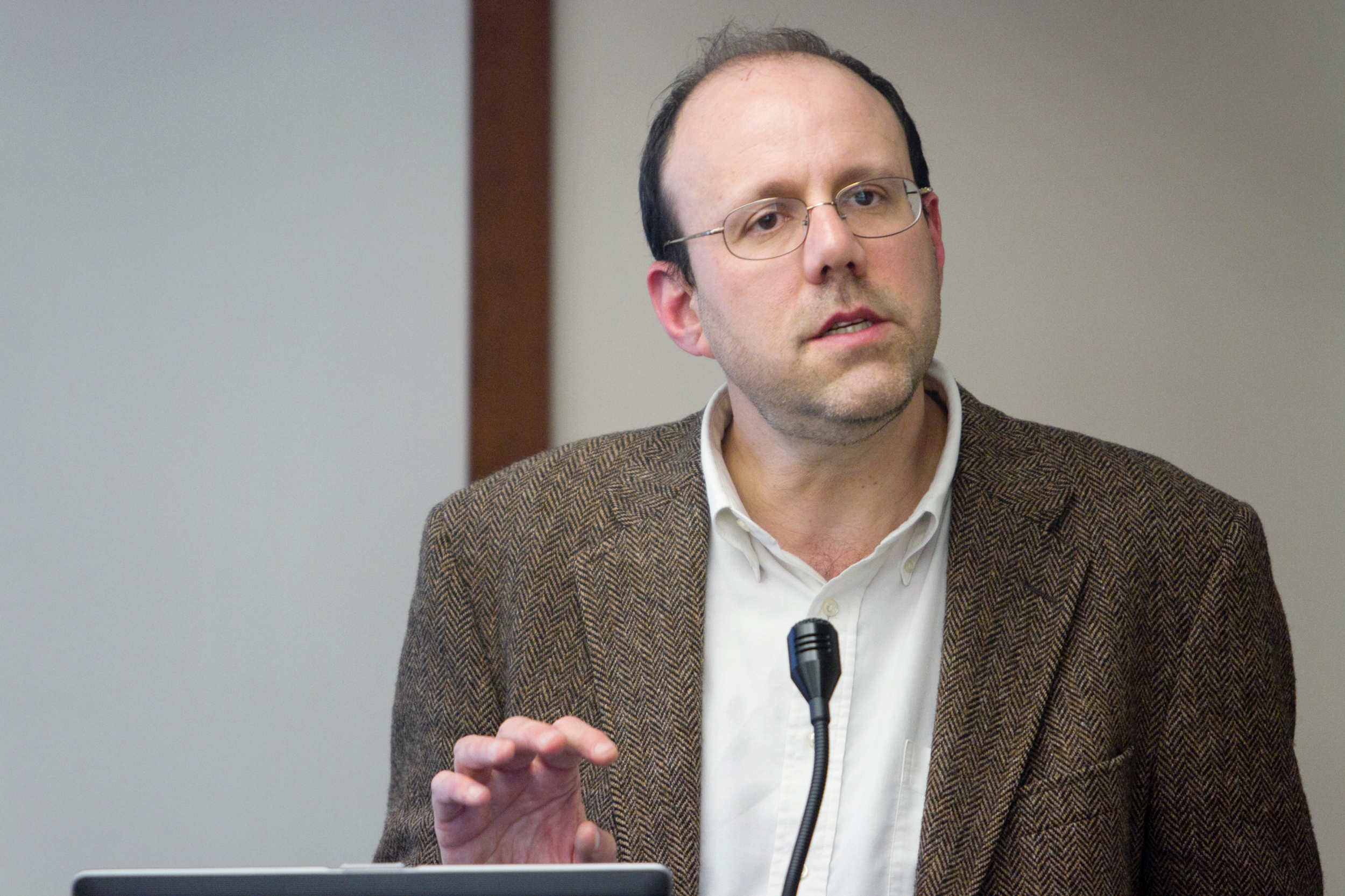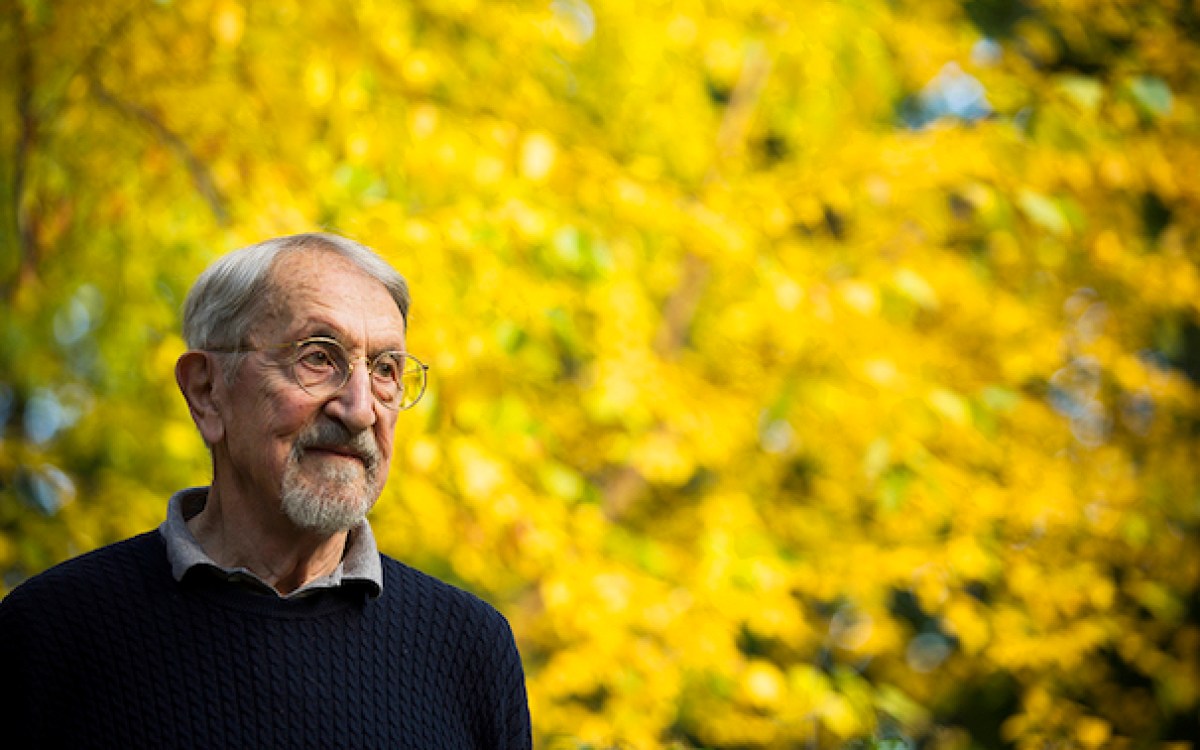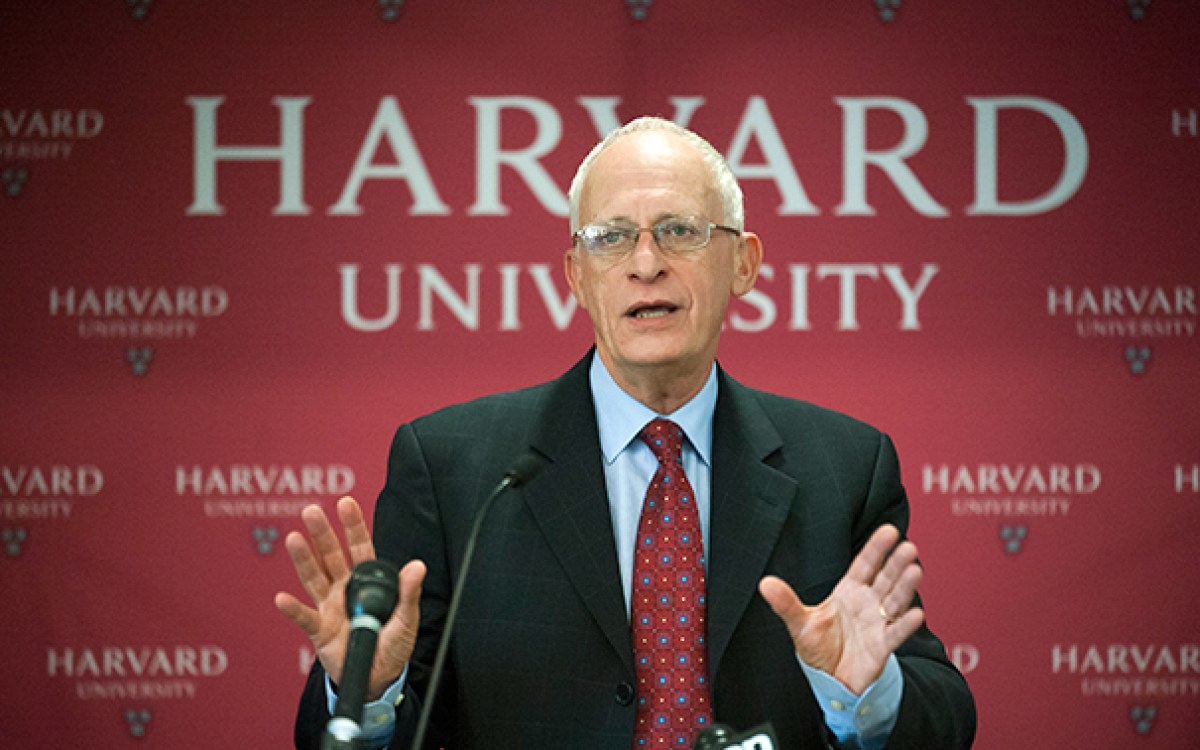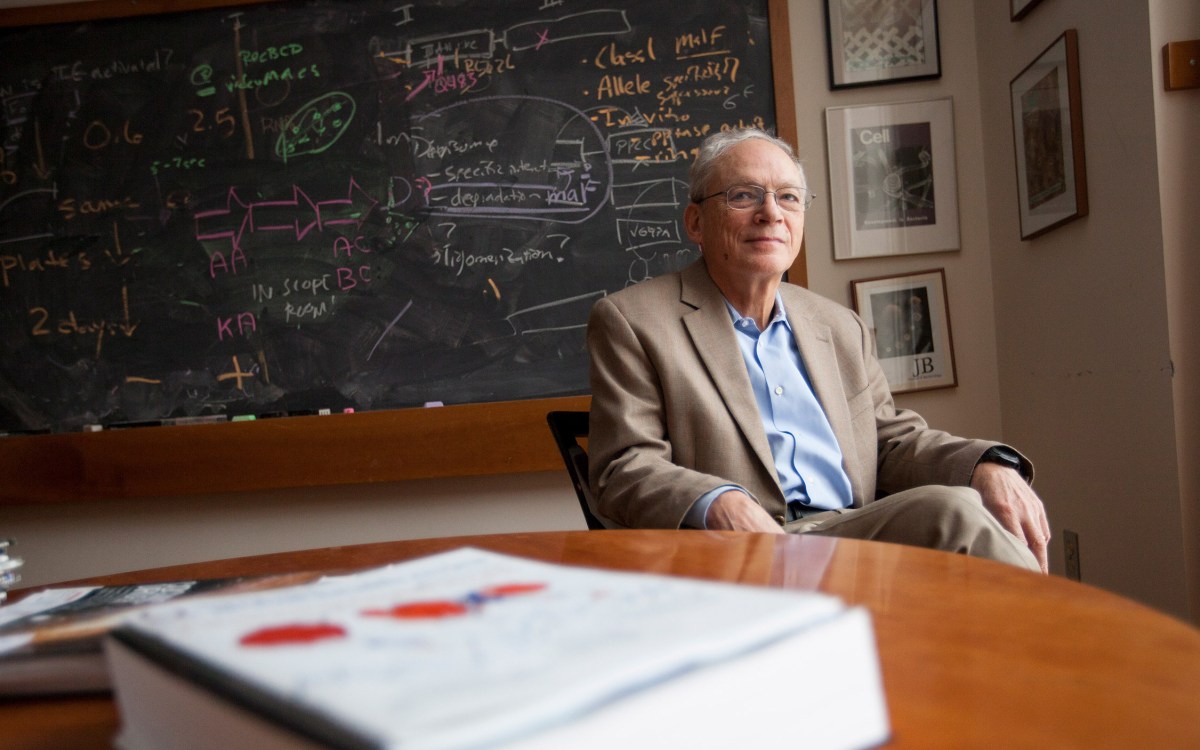
Harvard file photo
Michael Kremer wins Nobel in economics
Pioneered, along with two others from MIT, use of field experiments to determine effectiveness of world poverty programs
Michael Kremer received what seemed to be a very suspicious communication over Skype Monday morning.
“A friend in Sweden sent me a message saying ‘I need to speak to you urgently,’” said Kremer from London, where he is visiting friends and family this week. “Having been warned of phishing attempts by Harvard’s IT department, I thought it might be one of those. Soon enough, I realized it was real and why it was sent to me. I’m stunned.”
It was a fitting way for the economist, who employs strict, real-life logic in battling global poverty, to figure out that the Royal Swedish Academy of Sciences had awarded him the 2019 Sveriges Riksbank Prize in Economic Sciences in Memory of Alfred Nobel.
Kremer, the Gates Professor of Developing Societies in the Department of Economics, shared the honor with Abhijit Banerjee, Ph.D. ’88, and Esther Duflo of MIT. The award recognizes their work on reducing poverty by breaking down larger problems, such as deficiencies in education and child health, into component pieces, then designing targeted field experiments to determine the most effective solutions.
Over the course of his career, Kremer has watched the discipline change dramatically into one in which researchers engage with teachers, farmers, nonprofit organizations, and governments to develop and test innovative approaches to social problems and to whittle away at inequality and poverty around the world.
“The combination of deep engagement on the ground with intellectual rigor is producing very exciting work, both in terms of understanding the world and in helping to provide practical solutions to problems affecting some of the poorest people in the world,” said Kremer.
“Michael Kremer’s path-breaking work not only opened up new ways to think about development economics, it has helped alleviate poverty for millions around the world and shown the power of economics to make a tangible, positive difference in people’s lives,” said Harvard President Larry Bacow. “All of us at Harvard are grateful for Michael’s contributions. We congratulate him and his colleagues at MIT on this great day.”
Jeremy Stein, Moise Y. Safra Professor of Economics and chair of the Economics Department, declared the news to be very exciting “for the department and for economics in Cambridge.”
“The fact that the Swedish Academy of Sciences has chosen to recognize the work at this relatively early stage is a fitting testament to the effect that they have already had in the field,” he said.
“It can often seem like the problems of global poverty are intractable, but over the course of my lifetime and career, the fraction of the world’s people living in poverty has dropped dramatically.”
Michael Kremer
Kremer received both his 1985 undergraduate degree in social studies and 1992 Ph.D. in economics from Harvard. He is a Fellow of the American Academy of Arts and Sciences, and a recipient of a MacArthur Fellowship and a Presidential Faculty Fellowship. In 2010, he was named the Scientific Director of Development Innovation Ventures for the U.S. Agency for International Development (USAID) and in 2013-2014, a fellow at the Radcliffe Institute for Advanced Study.
Duflo got her doctorate at MIT. At 46, she is the youngest to win the prize and only the second woman after Elinor Ostrom, who received the honor in 2009. Duflo and Banerjee helped found at MIT the Abdul Latif Jameel Poverty Action Lab, a global network of poverty researchers.
The three winners introduced a new rigorous, practical, and incremental approach to fighting poverty. Starting in the mid-1990s, Kremer began testing ways to improve school results in western Kenya. Banerjee and Duflo later worked on similar studies, sometimes with Kremer, on a variety of problems in other countries, including access to credit and agricultural fertilizer subsidies.
“Our goal is to make sure the fight against poverty is based on scientific evidence,” Duflo said by telephone to reporters during a press conference after the award announcement. “Often the poor get reduced to caricatures,’’ and those seeking to help them “do not understand the deep roots of what is making them poor.”
Their work in agriculture, education, and health has led to direct benefit for millions of poor people worldwide. More than 5 million Indian children have been helped by remedial tutoring in schools owing to their research. And their studies have also resulted in major increases spending on preventive health care in several nations.
“It can often seem like the problems of global poverty are intractable, but over the course of my lifetime and career, the fraction of the world’s people living in poverty has dropped dramatically,” said Kremer. “Over the years, we have learned a lot about what works and what doesn’t work, and why. Governments and nonprofit organizations have become much more effective in addressing, and there is much wider recognition of how researchers and policymakers can work together in the fight against poverty.”
Kremer says he has always conducted his research with an eye toward collaboration. His initial projects in Kenya came about from conversations with friends at nonprofit organizations who wanted to better understand the effectiveness of their programs.
Kremer suggested that if they randomized the order in which they phased in new programs, they could measure the impact of their programs and isolate it from other confounding factors.
More like this
“Economics has been learning a lot from other fields,” said Kremer. “People in our field are working with other researchers across disciplines and with practitioners on the ground. It’s wonderful that we can work together on these issues.”
The Nobel Memorial Prize in Economic Sciences was established in 1968 by the Sveriges Riksbank (Sweden’s central bank) in memory of Alfred Nobel. In 1971, Simon S. Kuznets was the first Harvard faculty to receive the prize. Kuznets was recognized for developing the concept of using GNP as a measure of change in a nation’s economic growth.
Kremer’s win marks the third Sveriges Prize awarded a Harvard faculty member in the past decade and the 11th overall. It is also the second Nobel won by a Harvard professor in the past week. On Oct. 7, William G. Kaelin Jr., the Sidney Farber Professor of Medicine at Harvard Medical School, was one of three recipients of the Nobel Prize in physiology or medicine.
More recently, Harvard Professor Oliver Hart, the Andrew E. Furer Professor of Economics, was honored with the economics prize in 2016 for his contributions to contract theory. Hart shared the award with Bengt Holmström of the Massachusetts Institute of Technology.
Alvin E. Roth won in 2012 for his work on practical applications of mathematical theories, which have transformed markets ranging from public school assignments to kidney donations to medical resident job placements.
With today’s prize, 50 current and former Harvard faculty members have now received Nobels for wide-ranging work including the tissue culture breakthrough that led to creation of the polio vaccine, negotiations that led to an armistice in the 1948 Arab-Israeli War, the first description of the structure of DNA, pioneering procedures for organ transplants, poetry, and much more.
For a full list of Harvard Nobel laureates, visit the website.








